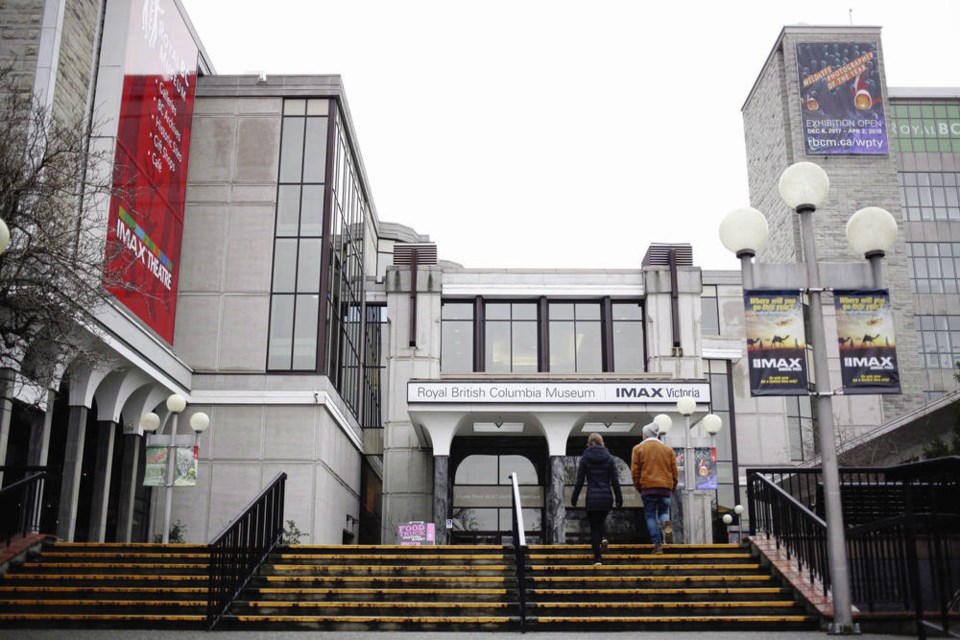The Royal B.C. Museum is publicly apologizing to a former staff member who cited a culture of racism and discrimination in her resignation speech last summer, as a report and staff survey find Indigenous staff have experienced discrimination, and leadership failed to effectively manage the work environment that fostered discriminatory behaviour.
Independent investigators hired by the B.C. Public Service Agency interviewed museum employees and reviewed hundreds of documents, including emails and text messages, human resources documents, museum policies and financial documents over nearly a year. The museum released a summary of the investigation Tuesday in a report that also shared a summary of the results of an internal inclusion and psychological safety survey completed last year.
The combined findings of the investigation and the staff survey show there have been acts of discrimination at the museum and Indigenous team members have been subjected to discriminatory behaviour; that museum leadership did not effectively handle the conditions that led to the discrimination; that core exhibits are outdated and focus too narrowly on colonial history; that many staff view the museum as a toxic workplace characterized by a culture of fear and distrust; and that the museum is under-resourced.
The survey by Inclusive Excellence Strategy Solutions Inc. compiled responses from staff and showed employees feared retribution for speaking out, people of diverse backgrounds are not being treated fairly, many employees are not happy at work and do not feel safe, and the complaints process is flawed.
The survey concluded employees are experiencing trauma working at the museum, but are attached to their jobs and face slim job prospects in the field. “The museum needs to act and make BOLD moves: the situation cannot be allowed to continue or get worse,” the survey results say.
Acting CEO Daniel Muzyka acknowledged the museum has been a colonial institution since its creation in 1886, with some displays that are an offensive and inadequate representation of Indigenous history.
“To be frank, these two reports show that we are not the museum we wanted to be. And we’re not the museum we should be,” Muzyka said to reporters. “I apologize for the way the museum treated [former staff member] Lucy Bell, and the many individuals within our workforce as well as the communities and nations we serve.”
He pledged an overhaul of the museum’s organizational structure and internal policies.
The museum is planning to replace core galleries with new exhibits that better reflect the voices and history of all people in B.C., recruit a new CEO and fill other executive vacancies, provide staff training on topics such as professional communication, microaggressions and unconscious bias to ensure an inclusive culture and ensure the museum’s operations are aligned with the principles of the Declaration on the Rights of Indigenous Peoples Act.
The museum also plans to put more resources into the Indigenous collections and repatriation department, including hiring a vice-president of Indigenous partnerships to report to the CEO as a member of the executive committee, as well as two Indigenous collections managers.
The investigation found staff in the department were not adequately supported in their work.
The staff survey and B.C. Public Service Agency investigation were launched in response to Bell’s resignation as head of the Indigenous collections and repatriation department last year.
Bell, a member of the Haida nation, told her colleagues in a July 24 speech that the museum needs to be a more welcoming place for people of colour, citing examples of racist comments she heard during three and a half years at the museum.
The museum’s former CEO, Jack Lohman, stepped down in February, saying in an email to staff that the organization needed “new energy and fresh leadership.” The museum said in a statement at the time that Lohman’s resignation was a joint decision with the board of directors.



